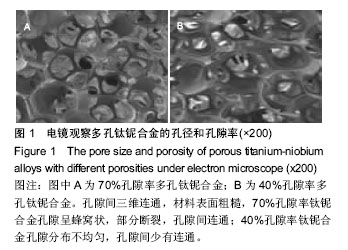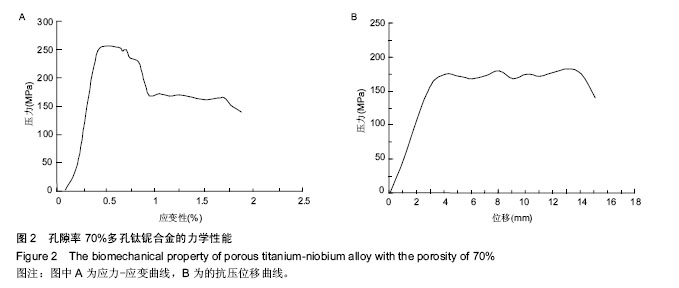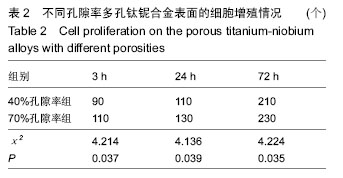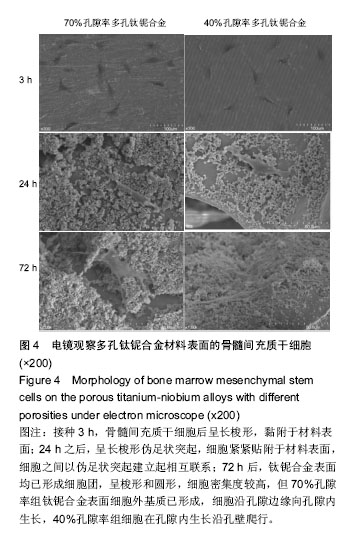| [1]路荣建,刘洪臣.多孔钽作为骨植入材料的研究进展[J].中华老年口腔医学杂志,2013,11(3):173-176.
[2]陈斌,祝君梅,程琳,等.医用钛合金Ti-6Al-4V基体/羟基磷灰石涂层复合材料的生物安全性评价[J].生物医学工程研究,2012,31(3):195-197,200.
[3]张恒辉,冯建民.全髋关节置换术生物固定型股骨柄假体临床应用进展[J].国际骨科学杂志,2013,34(5):348-352.
[4]刘宏鸣,朱吉桂,叶峥,等.植骨加盖行生物学固定型全髋关节置换治疗严重成人髋关节发育不良[J].中国组织工程研究,2014,18(26):4120-4124.
[5]柏传毅,卫文博,侯德门,等.新型钛合金金属橡胶颈椎间盘假体生物力学分析[J].中国脊柱脊髓杂志, 2014,24(8): 752-756.
[6]王博,段永宏.人工关节假体体内固定方式研究进展[J].陕西医学杂志,2012,41(11):1550-1551.
[7]刘天盛,王宇强,王景贵,等.人工关节无菌性松动界膜中的溶骨因子[J].中国组织工程研究与临床康复, 2010, 14(35): 6496-6499.
[8]马玉超,田京.人工关节假体植入后无菌性松动的发病机制[J].中国组织工程研究,2012,16(26):4892-4897.
[9]胡欣,魏强,李长义,等.新型口腔修复用钛锆铌锡合金的生物安全性评价[J].口腔颌面修复学杂志, 2010,11(1):33-36.
[10]李泳.多孔钛铌合金的表征、生物相容性及在缺损性植骨中的研究[D].中南大学,2012.
[11]余森,于振涛,韩建业,等.医用钛合金Ti-3Zr-2Sn-3Mo- 25Nb表面自组装抗凝血复合涂层的构建及其血液相容性[J].中国有色金属学报(英文版), 2012,22(12):3046-3052.
[12]王文静,黄剑锋,李颖华,等.生物材料中基体及涂层材料的理论研究与进展[J].中国组织工程研究与临床康复, 2010, 14(3):505-508.
[13]杨越,叶琦,简裕涛,等.多孔钛的骨传导性及其孔隙结构对MC3T3-E1细胞早期分化的影响[J].口腔材料器械杂志, 2014,23(1):9-14.
[14]徐玮,石新莹,关锐峰,等.孔隙率对多孔镍钛合金力学性能及离子析出量的影响[J].医用生物力学, 2011,26(4): 349-354.
[15]董鑫.不同孔径的磷酸钙骨水泥对大鼠骨髓间充质干细胞生物相容性影响差异的研究[D].第四军医大学,2011.
[16]佘荣峰,邓江,黄文良,等.丝素蛋白/壳聚糖三维支架材料的制备方法[J].中国组织工程研究与临床康复, 2011, 15(47):8821-8824.
[17]Mason BN,Califano JP,Reinhart-King CA.Matrix stiff-ness:a regulator of cellular behavior and tissue formation.Berlin:Springer,2012:19-37.
[18]Shan J.Mechanosensing of cells in 3D gel matrices based on natural and synthetic materials.Cell Biol Int.2014;38(11):1233-1243.
[19]Trappmann B,Chen CS.How cells sense extracellular ma-trix stiffness:a material’s perspective.Curr Opin Biotechnol.2013;24:948-953.
[20]王红兵,张持,杨力,等.基底硬度对肝细胞胞间粘附复合物稳定性的影响[J].第三军医大学学报, 2013,35(20): 2181-2186.
[21]Chiang MY.Relationships among cell morphology,intrinsic cell stiffness and cell-substrate interactions. Biomaterials.2013;34(38):9754-9762.
[22]Yangben Y,Wang H,Zhong L,et al.Relative rigidity of cell-substrate effects on hepatic and hepatocellular carcinoma cell migration.J Biomater Sci Polym Ed. 2013;24(2):148-157.
[23]Yangben YZ.Effects of substrate rigidity on human hepatic and hepatocellular carcinoma cell migration behavior.J Med Biol Eng.2013;33(2):199-206.
[24]Sunyer R.Fabrication of hydrogels with steep stiffness gra-dients for studying cell mechanical response.Plos One.2012;7(10):353-358.
[25]Mason BN.Tuning three- dimensional collagen matrix stiffness independently of collagen concentration modulates endothelial cell behavior.Acta Biomaterialia. 2013;9(1):4635-4644.
[26]王方辉,张姗姗,舒静媛,等.纯钛种植体表面改性对骨结合的影响[J].中国组织工程研究,2014,18(52):8491-8497.
[27]容明灯,张雪洋,李少冰,等.活性表面种植体在同一植入位点不同骨结构的早期骨结合差异[J].广东医学, 2014, 35(11): 1661-1663.
[28]吴松涛,孟维艳,蔡青等.PTH(1-34)对兔骨质疏松种植体骨结合影响的研究[J].实用口腔医学杂志, 2011,27(2): 181-184.
[29]郑琳琳,刘珺,陈杰,等.不同软组织处理方式对支抗微种植钉-骨界面的组织学影响[J].中国组织工程研究, 2012, 16(17):3073-3077.
[30]林剑浩,吕厚山,寇伯龙,等.国产表面多孔解剖型全髋关节置换术的远期随访结果[J].中华骨科杂志, 2010,30(2): 165-169.
[31]魏均强,蔡谞,陶笙,等.中空多孔钛假体复合松质骨基质兔体内骨生成组织学研究[J].海南医学, 2015,26(8): 1097-1100.
[32]汪爱媛,李永滨,许文静,等.钛铌涂层镍钛记忆合金的生物安全性及生物相容性[J].中国医药生物技术, 2010,5(1): 32-37.
[33]胡欣.齿科修复用钛-锆-铌-锡合金研制及临床应用研究[D].天津医科大学,2011.
[34]Wang LS.Injectable biodegradable hydrogels with tunable mechanical properties for the stimulation of neurogenesic differentiation of human mesenchymal stem cells in 3D culture.Biomaterials. 2010;31(6): 1148-1157.
[35]Sur S.Tuning supramolecular mechanics to guide neuron development.Biomaterials. 2013;34(20): 4749-4757.
[36]Stevenson MD.A self-assembling peptide matrix used to control stiffness and binding site density supports the formation of microvascular networks in three dimensions.Acta Biomaterialia.2013;9(8):7651-7661.
[37]Wallat JD,Rose KA,Pokorski JK.Proteins as substrates for controlled radical polymerization.Polym Chem. 2014;5(5):1545-1558.
[38]Moad G,Rizzardo E,Thang SH.RAFT polymerization and some of its applications.Chem Asian J. 2013;8(8): 1634-1644.
[39]Hu J.Visible light crosslinkable chitosan hydrogels for tissue engineering. Acta Biomaterialia. 2012;8(5): 1730-1738.
[40]Park H.Injectable chitosan hyaluronic acid hydrogels for cartilage tissue engineering.Acta Biomaterialia. 2013;9(1):4779-4786.
[41]Rosselgong J.Core degradable star RAFT polymers: synthesis,polymerization,and degradation studies. Macromolecules.2013;46(23):9181-9188.
[42]Nie J.Orientation in multi-layer chitosan hydrogel: morphology,mechanism,and design principle.Scientific Reports.2015;5:7635.
Vincent LG.Mesenchymal stem cell durotaxis depends on substrate stiffness gradient strength.BiotechnolJ. 2013;8:472-484. |
.jpg)






.jpg)
.jpg)